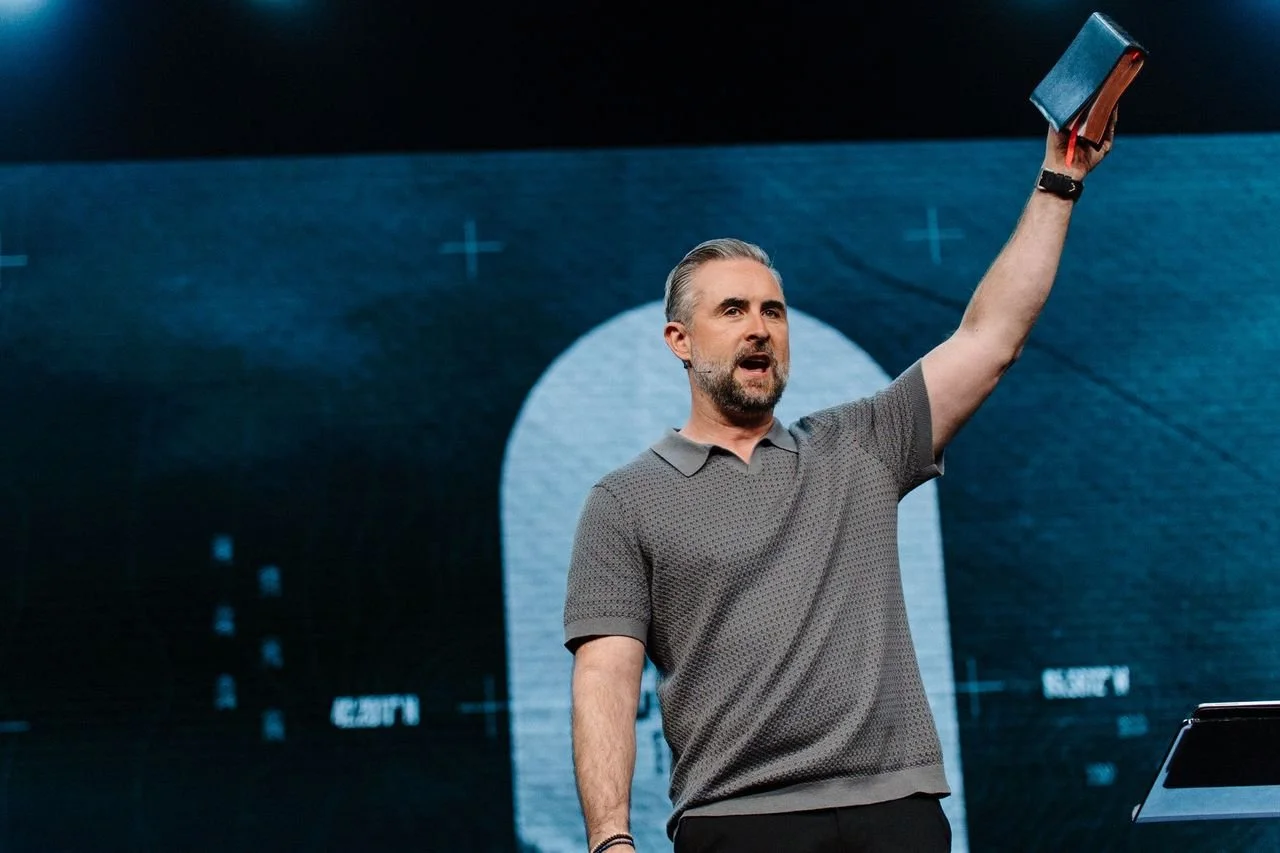3 Minute Church: Suffering in Faithfulness
This blog unpacks Pastor Lee’s sermon from May 26, 2024: Suffering in Faithfulness
“Just because you have been brought into the family of God as a saint, just because you are a part of the church—you've been called out of the world—doesn't mean that it's going to be painless.”
Pastor Lee Cummings
Church in the Wild is the summer sermon series at Radiant that unpacks 2 Corinthians and Paul's apostolic life, ministry, and relationship to the Church of Corinth. In this sermon, Pastor Lee Cummings gives context to 2 Corinthians, teaches how there will be suffering in remaining faithful to Jesus, and defines three important terms you need to know: apostle, church, and saints.
Living in “wild” times like the ancient city of Corinth, we are reminded that Paul’s apostolic leadership did not expire 2,000 years ago—but is alive more than ever. As missionaries, planters, and leaders continue to build the body of Christ, God's purpose for establishing churches in cities to be salt and light becomes clear. We are called to be saints—holy ones set apart for God's purposes, even when we face suffering and persecution in this world.
LET’S BREAK IT DOWN:
Paul begins the early part of his ministry by spending about a year and a half in the Roman colony of Corinth, which was a metropolis for the wealthy, sexually immoral, and socially diverse. To say that he chose a complicated city to minister to would be an understatement. But, he successfully establishes a church, even in the midst of political strife, internal battles of the church, and rejection from Jewish leaders.
When Paul leaves Corinth, he writes 2 Corinthians to express his passions for the church that they might understand suffering for the name of Jesus, and the importance of maintaining unity as the body of Christ.
Pastor Lee gives us three terms from Paul’s letter to the church that help establish his hopes for them, one being apostle. Did you know that apostles are defined differently by the capitalization of the “a''? Apostles with a capital “A” are significant leaders that have been commissioned by God, such as Jesus—the ultimate Apostle—the original 12 disciples, Paul, and few others.
These significant figures were transformational during the creation of the Church, but the role of apostolic leadership did not stop there. Apostles with lowercase “a”, which are what we define today as evangelists, pastors, teachers, and planters are sent to continue the growth of the Church today. While they do not carry the same authority as Apostles, their contribution is equally as important.
The physical definition of a church is a gathering place, but Paul makes it clear that the church of Christ is about gathering the apostles and called-out ones to continue to bring light to darkness. This is the second term that Pastor Lee gives us. Being redeemed in Christ, escaping a pagan society, and establishing churches comes at the price of suffering. But, our identity in Christ largely revolves around dying to self.
The word ekklesia is commonly used by Paul in 2 Corinthians to describe his vision for the church: if you are a Christian, you are a part of Jesus, but now you're also called to be a part of the ekklesia—the gathering together of the called-out ones.
Being called out, or set apart for God’s purpose, enters us into a covenant with Christ. This leads us to Pastor Lee’s third term: saints. If the Holy Spirit truly dwells inside of us, regardless of the struggles we face daily, imperfections that riddle us, and hardships we go through, we are blameless and holy before Him.
Even the worst Christian is still a saint.
But just like the Church of Corinth, God has not removed us from a world of suffering or sin. When we are left to live in the world, it isn’t going to be painless, and it surely won’t be easy. Paul encourages his Body in 2 Corinthians to take heart and remain steadfast in their new identity as Christians.
So, what does this mean for us today?
In a world that mirrors the “wild” times of the ancient city of Corinth, themes from 2 Corinthians still ring true. If we’re going to be effective in living out what God has called us to do, we have to understand why these three terms are so important.
Without apostolic leadership, our growth would remain stagnant. Without the Church, we would be deprived of community. Without sainthood, we would prioritize shame over God’s holy purpose for our lives. This is why God calls us to establish community, and why He does it in cities—just like Kalamazoo.
We are called to be the salt and light.
We are called to continue the redeeming work that Paul is on fire for.
We are called to live in unity.
